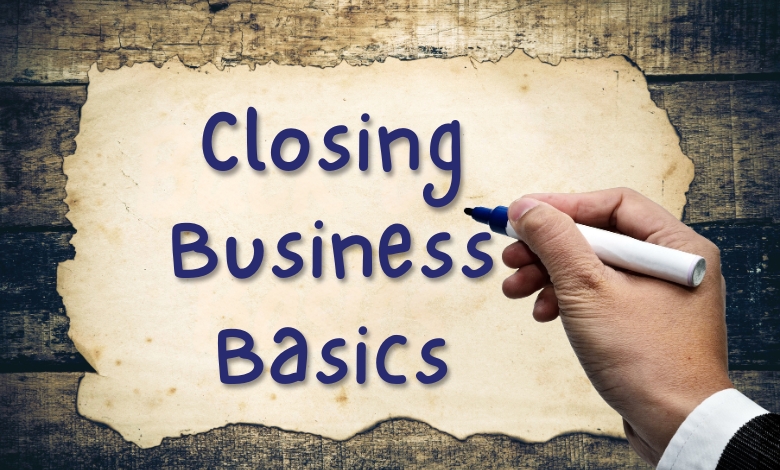Learn how to master closing a business with this comprehensive guide, personal insights, and answers to frequently asked questions.
Closing a business is a significant decision that can be fraught with emotional and logistical challenges.
I remember the day I decided to close my first startup like it was yesterday.
After pouring my heart, soul, and countless hours into the project, financial difficulties and a shift in my personal life priorities led me to the tough choice of selling the business.
The process was daunting—not just because of the emotional toll, but also due to the myriad of logistical hurdles that followed.
However, through meticulous planning and a thorough understanding of the steps involved, I managed to navigate the complex process successfully.
Drawing from my own experience and the stories of others I’ve guided through similar journeys, I’ve created this comprehensive guide to walk you through everything you need to know about closing a business.
From answering frequently asked questions to offering insights gleaned from personal experiences, I aim to provide you with the authoritative advice you need to make informed decisions and handle this transition with confidence.
Article Breakdown
1) Do You Have to Notify the IRS When You Close a Business?
Yes, notifying the IRS is a critical step when closing a business. Failing to do so can result in continued tax liabilities and complications. You must file the final tax return for your business and report that it is the last return. Additionally, if you have employees, you need to file final employment tax returns. The IRS also requires that you cancel your Employer Identification Number (EIN).
When I closed my first business, I overlooked informing the IRS. It led to months of back-and-forth communication and unnecessary stress. Once I followed the correct procedures, it was a huge relief knowing that my tax obligations were properly closed out.
2) How Do You Close a Business?
Closing a business involves several steps:
In my experience, creating a detailed checklist made the entire process more manageable. I remember the sinking feeling of realizing I’d forgotten to notify a key supplier; having a plan helped avoid these pitfalls.
3) What Do You Say When Closing a Business?
When closing a business, clarity and honesty are essential.
Crafting this message was one of the hardest parts of closing my business. I found that being candid about the reasons and expressing gratitude helped maintain professional relationships even as the business wound down.
4) Do I Need to Cancel My EIN if I Close My Business?
Yes, canceling your EIN is necessary when you close your business. To do this, you must write to the IRS, including the complete legal name of the business, the EIN, the business address, and the reason for closing. You should also enclose the EIN assignment notice.
Canceling my EIN was straightforward but often overlooked. A friend who didn’t cancel theirs ended up dealing with unexpected tax notices. Ensuring all IRS-related tasks are completed saves potential headaches.
5) Can You Get Audited After You Close Your Business?
Yes, closing a business does not preclude the possibility of an audit. The IRS can audit returns from the past three years and sometimes beyond, depending on the circumstances. Therefore, it is crucial to keep all your records for at least six years after closing.
Despite closing my business, I was selected for an audit a year later. Keeping meticulous records and having everything organized made the process smoother and less stressful.
6) Can the IRS Come After a Business That Is Closed?
Yes, the IRS can pursue any unresolved tax issues even after a business has closed. This includes unpaid taxes, interest, and penalties. Therefore, it is imperative to settle all tax obligations before officially closing the business.
I had a peer whose closed business was pursued by the IRS for back taxes. Witnessing their struggle reinforced the importance of resolving all tax matters upfront.
7) What Is the Cheapest Way to Close a Business?
The most cost-effective way to close a business largely depends on its structure and the complexity of its operations.
Here are some general tips:
For my small sole proprietorship, handling the closure myself saved money. However, for more complex entities, seeking professional advice can prevent costly mistakes.
8) What Happens When You Close Down a Business?
When you close a business, it ceases operations entirely. This involves terminating leases, selling off assets, paying off debts, and distributing any remaining assets to the owners or shareholders. All legal and tax requirements must be satisfied to ensure the closure is complete.
Closing down my business felt like drawing a line under a significant chapter of my life. Although challenging, it allowed me to move on to new opportunities without lingering issues from the past.
9) How Long Does It Take to Close a Business?
The time it takes to close a business varies widely based on its size, structure, and complexity. It can take anywhere from a few weeks to several months. Critical factors include settling debts, liquidating assets, and completing all legal and regulatory requirements.
My experience showed that patience is necessary. While I anticipated a quick resolution, unforeseen obstacles stretched the process to nearly six months.
10) What Is the IRS 6-Year Rule?
The IRS generally audits tax returns filed within the last three years. However, if substantial errors are found, the agency can go back up to six years. This is known as the 6-year rule. Therefore, maintaining accurate records for at least six years is prudent.
I learned about the 6-year rule during my audit and was thankful I had kept thorough records. It underscored the importance of diligent record-keeping.
Final Thoughts
Reflecting on closing my business, I see the importance of steps like settling debts, canceling permits, filing final taxes, and liquidating assets. From notifying stakeholders to canceling an EIN, every step is crucial. A smooth transition depends on meticulous planning and attention to details, such as credit card agreements and minor subscriptions. Understanding terms like “dissolution” and “winding up” provided clarity and confidence throughout the process.



